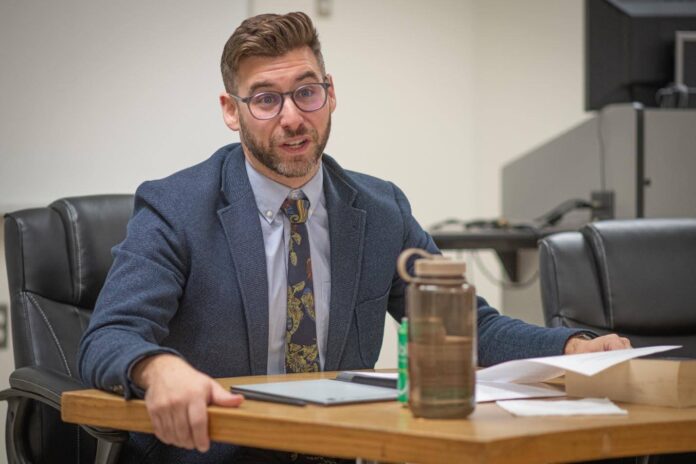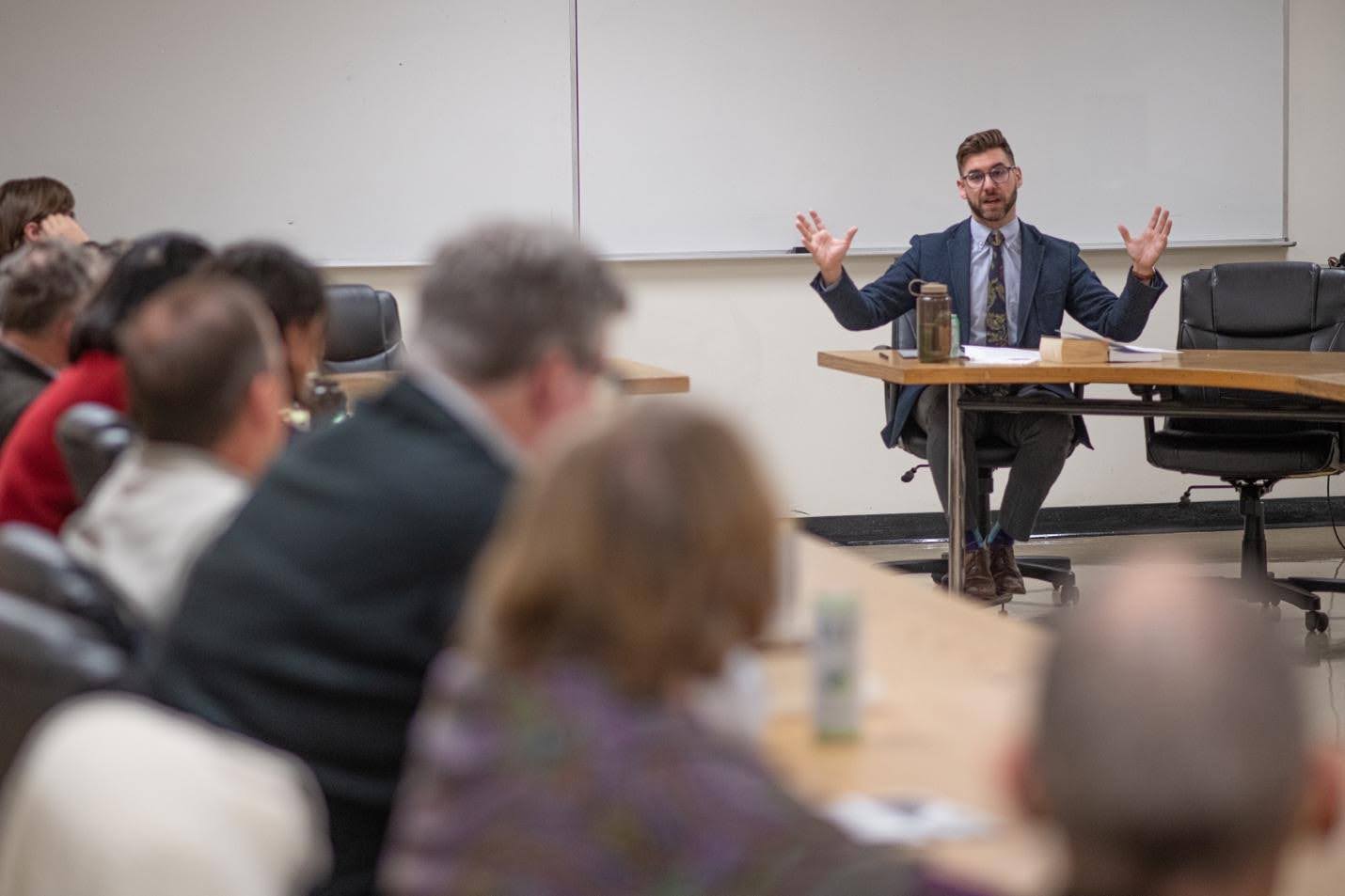
On Oct. 17, associate professor and director of the great books program Matt Dinan led a public talk at St. Thomas University on how Christians should think about politics.
Around 20 faculty, students and members of the community gathered around a table to listen in on the lecture.
To preface his talk, Dinan said that the answer to the name of his lecture was “extremely easy and simple.”
“Christians ought to think about politics prayerfully and carefully,” said Dinan.
Christianity does provide specific political answers according to Dinan. He said that it offers ethical guidance, such as developing the virtue of prudence with an emphasis on eternal life and loving one’s neighbor.
Tom Bateman, a political science professor at STU, agrees with Dinan in the sense that it sets the values for the individual to interpret in their own way.
“[The New Testament] doesn’t set out a political agenda for believers, so it is for the believers themselves in different times and places to work out how they shall conduct themselves as citizens and members of broader communities,” said Bateman.
Claire Morrison, STU’s Campus Minister, said she was curious and eager to hear what the great philosophers had to say about politics.
“What are the questions that I’m not asking myself that are going to help me put my priorities in order and maybe feel more certain that I’m doing the right thing when I am casting my vote,” said Morrison. ”My priorities are peace.”

Dinan traced two competing traditions of political thought, St. Augustine’s critical view of political life and St. Thomas Aquinas’ more optimistic perspective.
“[For] Aquinas’ politics it is not only necessary, but good and it has the goal of helping human beings achieve earthly happiness. Participation in political rule actually allows for the possibility of doing greater good and displaying more virtue,” said Dinan.
“The goal of a good political community is to help turn us towards human virtue.”
Aquinas suggests that through unity of peace, we can move beyond our selfishness and foster a kind of common good.
His motto was “peace is its goal” in navigating the tensions between the city of man and God, according to Dinan.
Dinan concluded his lecture by saying that Christianity, despite not answering your political questions for you, staying true to Christian values can make political life better.
“If I’m not approaching every political issue as if it’s life or death, all of a sudden my disagreements with my neighbors become more manageable in this paradoxical way, caring less about politics might actually make political life better,” said Dinan.
